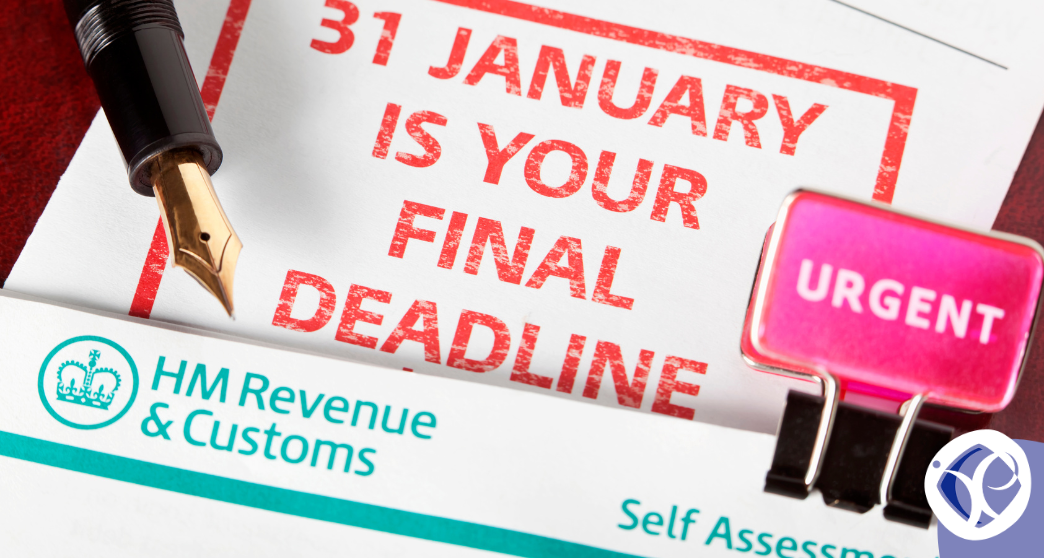The Self-Assessment tax journey often leaves many puzzled, particularly when considering factors like directorship, capital gains, or simply understanding HMRC’s outlined rules.
This often leads to people who need to file Self-Assessment returns not doing so, which leads to unexpected tax bills, and on top of that, fines.
We’ve put together a guide on when and why you might need to file a Self-Assessment tax return.

(Read Time: Approx. 4 minutes)
Topics Discussed:
- Criteria for filing a Self-Assessment tax return, and the potential penalties for non-compliance
- Specific legal cases impacting Self-Assessment requirements
Do I need to file for a Self-Assessment Tax Return?
Figuring out if you need to file a Self-Assessment tax return is crucial in order to avoid fines and penalties, and ensure you’ve paid the correct income tax per year.
Consider whether you work for yourself, or you’re working on a side hustle outside of your regular salaried job.
The obligation to file a Self-Assessment tax return in the UK is dictated by specific conditions:
- Capital Gains and Untaxed Income Reporting: The responsibility is on you to notify HMRC if you possess untaxed income – this includes employment income not covered by PAYE.
- HMRC’s Directive to File: Receiving a notice to file from HMRC is an immediate reason to start filing a return. Ignoring this notice can lead to significant late filing penalties, irrespective of your income status.
- Refund Claims and Tax Relief: Filing a return is also essential for claiming specific reliefs or allowances, adjusting residence status, or domicile. In some cases, a refund can be claimed without filing a return, such as adjusting your PAYE for employment expenses.
- Capital Gains: If you have made a capital gain, it’s imperative to notify HMRC and file a return.
- Dividend Income and Further Tax: If you have dividend income that requires additional tax payment, filing is necessary.
- Income from Trusts or Settlements: Yearly income received from a trust or settlement mandates a return.
- Other Untaxed Income or Higher Rate Liabilities: This includes situations where your PAYE code has been wrongly calculated, leading to underpaid tax, unreported taxable employment benefits, income from self-employment or a partnership, untaxed rental income, and foreign income. Also, non-resident landlords receiving rental income and members of unauthorised collective investment schemes are required to file.
Directors and Self-Assessment
For company directors, the landscape is intricate.
Generally, HMRC sets up a Self-Assessment record for new directors, with non-resident directors often required to file annually.
If your income as a director is strictly through PAYE and below £10,000, filing may not be necessary.
Legal Case Studies: In-Depth Analysis
- Mohammed Salem Kadhem v HMRC [2017] TC05929: In this case, a director successfully appealed against late filing penalties of £1,300. HMRC failed to provide sufficient evidence of issuing a notice to file, and since the director had no income or gains to declare, the penalties were waived.
- Krysystof Kaczmarcycyk v HMRC [2017] TC5754: This case saw a director fined over £3,500 for ignoring s.8 notices to file a Self-Assessment return across three years. Despite no UK tax liabilities and HMRC’s awareness of his dormant companies, the Tribunal upheld the penalties due to his disregard for the notices.
- Alexander Steele v HMRC [2018] TC06717: Here, late filing penalties for three consecutive tax years were cancelled. The taxpayer, a director with only PAYE income, was not legally required to inform HMRC of his address change (this was due to being on PAYE). The Tribunal recognised the lack of necessity for a tax return under his circumstances and applied a special reduction to the penalties, highlighting the importance of learning from mistakes.
Revised HMRC Guidelines Post Cases
Following these judicial decisions, HMRC amended its guidance in December 2018.
Directors whose income is entirely taxed at source, with no additional tax due, are no longer obligated to file a Self-Assessment return.
This change underscores the evolving nature of tax regulations and the importance of staying informed.
Summary
Self-Assessment tax returns have their own complexities, but they are essential for compliance and optimising potential benefits like tax reliefs and refunds.
Whether you’re a high earner, a director, or have capital gains, understanding your filing responsibilities is crucial.
For expert advice and detailed guidance, consider consulting with tax professionals, such as us here at Tax Expert.
Contact us today at 01772 788200 to find out more about how we can help, or WhatsApp us out-of-hours at 07787 010190.
Sending an e-mail is simple too, just fill out this short form and we’ll get back to you!
Kind regards,
Ilyas Patel
